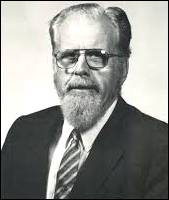Harrell Beck
Rev. Dr. Harrell F. Beck was the President of the Massachusetts Bible Society Board of Trustees, a United Methodist minister, a noted scholar, and a beloved professor of Old Testament at the Boston University School of Theology.
“The Story of Qumran: The Root and the Flower”
“Escape to Reality: How Biblical People Did Theology”
Bio below from Massachusetts Bible Society, 5/19/2012 (page since removed.)
Harrell F. Beck 1922-1987
 The words about him below are drawn from an address delivered by Dr. Earl Kent Brown, Professor Emeritus of Church History at Boston University, at the commemorative service recalling the life and work of Dr. Harrell F. Beck on January 14, 1988.
The words about him below are drawn from an address delivered by Dr. Earl Kent Brown, Professor Emeritus of Church History at Boston University, at the commemorative service recalling the life and work of Dr. Harrell F. Beck on January 14, 1988.
“Harrell was a man of great travel and greater insight. In Cairo, in Hong Kong, in Kankakee, he observed the anguish of hopelessness, for he was the kind of friend to whom men and women could talk freely. His observations began in rural Nebraska 65 years ago. They continued at school in Boston where he immersed himself in the city, and took on himself the agonies of urban America.
“His realm of observation grew in a decade and more in the Middle East. There he rejoiced to visit and study the archaeological sites of our heritage. But he sorrowed with the lament of modern millions caught in seemingly hopeless poverty—the fedayeen of Egypt, the refuse of Jerusalem’s streets and Samaria’s alleys.
“Harrell knew that injustice is rampant in our world. The plight of the refugees of the Middle East, of the starving in India, of the wartossed in both Iran and Iraq, of the hungry in Appalachia, of the abandoned in America’s prisons, of those repressed by racist and sexist institutions or ideas—all of these bore on his conscience and demanded his labor.
“Across the church his prophetic sermons have caused many to rethink social attitudes. It is no accident that newly elected Bishop Woodie White, a Black man, asked Harrell to preach his installation sermon in 1984. His long leadership in, and final presidency of, the Massachusetts Bible Society gave him an opportunity to pursue the implications of the teaching of the books he so loved in an ecumenical context.”
